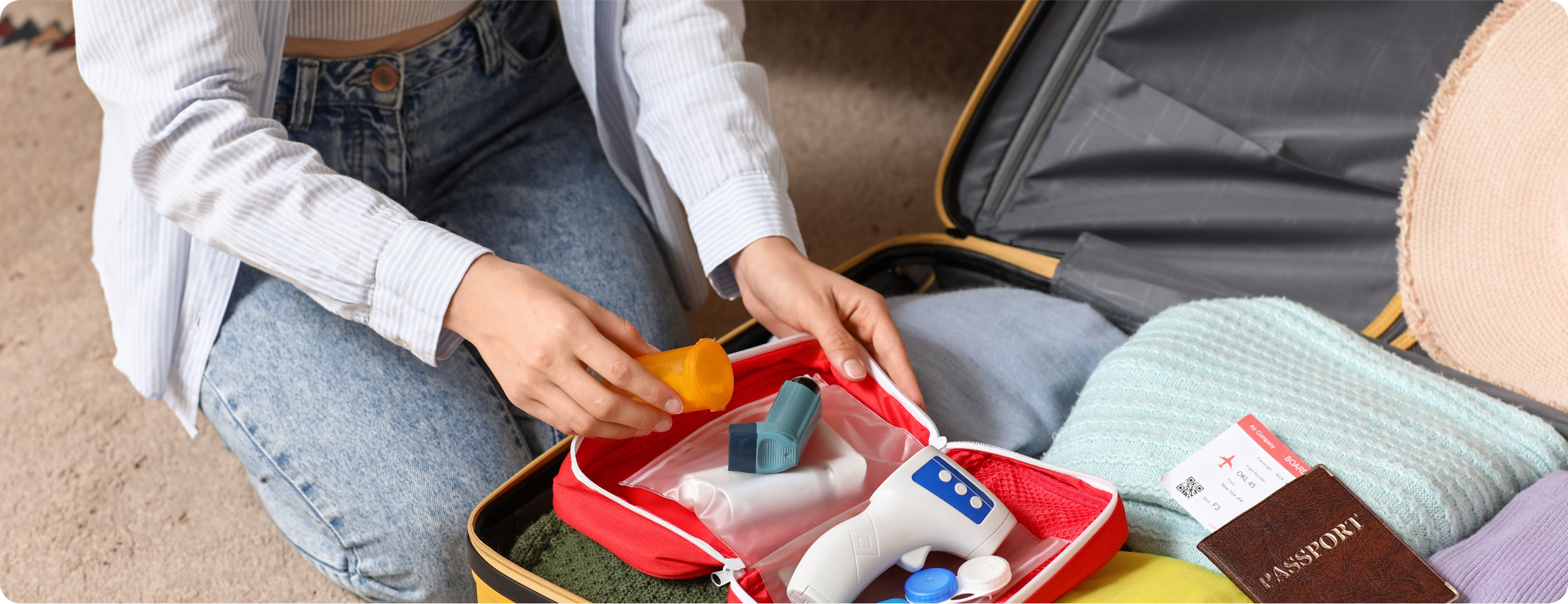Tips to reduce chances of contracting typhoid when travelling

Typhoid remains a major public health concern in India, with over 5 lakh cases recorded in 2023. Today, while more Indians are travelling internationally (and even domestically) than ever before, it is crucial to take precautions against typhoid. Following a few preventive measures before and during your next trip can keep you safe.
What is typhoid?
Typhoid is a bacterial infection that is caused by Salmonella typhi. It spreads through contaminated food and water, and its most common symptoms include fever, headache and intense stomach pain. The World Health Organization recognises typhoid as a major public health concern in South Asian countries like India, where poor sanitation contributes to its spread.
How to stay safe from typhoid while travelling?
To stay safe from typhoid, you can follow three simple steps:
- Follow the WASH (water, sanitation, and hygiene) protocol
- Be cautious with your food choices
- Take a typhoid vaccine before travelling
1. WASH protocol
While travelling, it is imperative that you follow strict hygiene standards to keep yourself safe. Wash your hands frequently with soap and water, especially after using the washroom and before eating food. If soap and water are not available, you can use hand sanitiser with up to 60% alcohol.
2. Safe food choices
- Avoid raw or uncooked foods, including salads.
- Choose hot, freshly cooked meals over buffet options.
- Avoid unfiltered water and drink boiled or bottled water if you are unsure about the source of water.
- Avoid ice cubes in drinks unless you’re sure they’re made from treated water. Opt for hot beverages, hygienically made juices, or packaged drinks instead.
- Steer clear of unpasteurised milk, milk products, or undercooked eggs.
- Eat fruits that can be peeled, such as bananas or oranges, or fruits that can be washed thoroughly.
3. Get vaccinated against typhoid
The best defence against typhoid is vaccination. The WHO recommends typhoid conjugate vaccines (TCVs) for long-lasting protection. Consult your doctor at least two months before your date of travel to get vaccinated.
Suggested Read – How do vaccines help in preventing typhoid?
Is vaccination really necessary?
Even the most cautious travellers are at risk of contracting typhoid. Vaccination not only reduces the risk of infection but also helps limit its spread. Since natural infection doesn’t provide lasting immunity, even those who have recovered from typhoid remain vulnerable and require vaccination.
Conclusion
Typhoid is a preventable disease, but it continues to affect millions both globally and in India. Whether you’re travelling within the country or overseas, taking the right precautions can make all the difference. Following good hygiene practices, making smart food choices and getting vaccinated are simple yet effective ways to protect yourself and those around you. Don’t let typhoid disrupt your journey. Plan ahead, stay cautious and prioritise your health for a worry-free trip.
Resources
Disclaimer: A public awareness initiative by Bharat Biotech International Limited. This information is for general awareness only and does not constitute medical advice. The doctors, medical facilities and graphics shown are for illustrative purposes only. For any medical advice or any question or concern you may have regarding your condition, consult your doctor.


